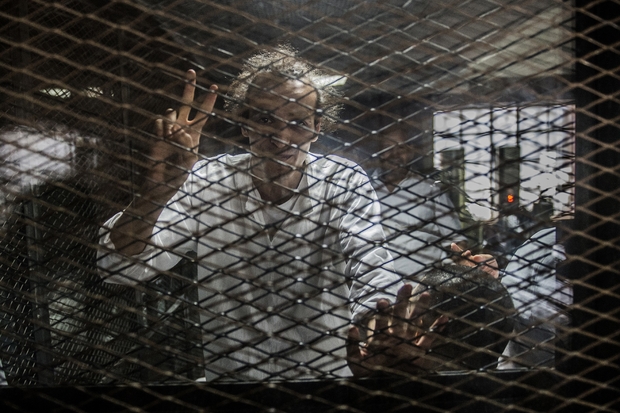
Parliament approved a bill on Wednesday to amend some of the articles in law 39 of 1956, to potentially make prisoners eligible for police patrol after serving half their sentence, rather than the current two-thirds of a sentence.
Moreover, the minimum prison sentence will be shortened from nine months to six.
The draft law will be subject to a final vote in parliament’s next session after a final revision from specialists in parliament.
The bill addresses the problem of overcrowded prison populations, which have adverse effects on prisoners’ standard of life, and increase the cost of insurance to unmanageable figures.
Essentially, the proposed law seeks to reduce the prison population while improving the organization of and conduct within prisons.
In August 2016, the number of detainees in Egyptian prisons was 106,000 (which includes pre-trial detainees), according to the World Prison Studies brief on Egypt. The 106,000 prisoners were held in 184 prisons. In a global perspective, this appears significantly overcrowded; Germany, by contrast, held 64,000 prisoners in 183 prisons.
Speaking to the state-owned Al-Ahram newspaper, MP Magdy Malak considers the draft law as the parliament’s way of overcoming cracks in legislation.
He claimed the bill is the latest in a series of reforms approved by parliament which empower citizens’ rights. “The bill is in alignment with the constitution and international agreements” which place crime prevention and sentencing policies on the right track, he said.
However, despite the potential beacon of light offered by the bill, Ashraf al-Sherif, professor of Political Science at the American University in Cairo, slammed the bill as a publicity stunt which fails to deal with the deeper issues in Egyptian politics.
“It’s not a government policy, it’s PR,” he said. “They just want to look better in front of the world to secure investments. It’s a purely technical and economical move, but it’s not political.”
“Do you want to talk politics?” he continued, before highlighting what he considers the greater problem. “The more holistic issue is freedom of expression, which in Egypt does not exist. Until we can really listen and trust each other, everything else is secondary,” Sherif told Egypt Independent.
Meanwhile, for MP Mohamed El-Sewedy, the aim of imprisonment is to improve the conduct of and help reform the individual imprisoned, not to torture detainees, he told Al-Ahram newspaper.
Sewedy also addresses a secondary problem: the cost of holding such a large number of inmates, specifically thieves, in prison costs the state far more than the sum of stolen goods. He therefore suggested the state should reconsider imprisoning people who steal minute amounts of money.
George Isaac, Egyptian politician and a human rights advocate, echoes Sherif, perceiving the bill as mere “propaganda.”
“Paroles already exist in the Egyptian judicial system. Dwelling on them is no good,” Isaac told Egypt Independent. “The problem is not with the time prisoners spend in detainment, but with the conditions that they face. In my opinion, that is not going to improve.”
“This is not the first time this law has been discussed,” he said, “but until this discussion is partnered with action to improve the lives of inmates during prison time and after it, there is nothing to discuss.”
Out of 223 states and territories, Egypt’s prison population is the 16th highest in the world, according to World Prison Studies.




